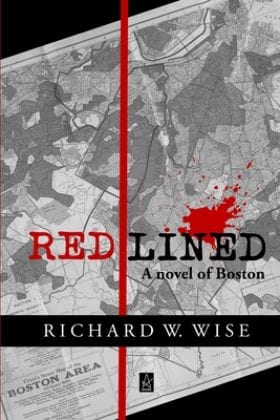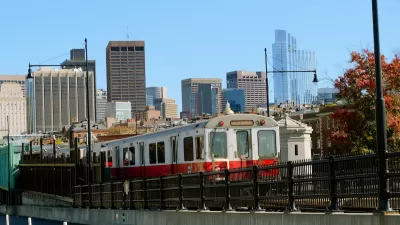In “Redlined: A Novel of Boston” by Richard W. Wise, an organizer's murder in 1970s Jamaica Plain exposes an epic battle over the future of American cities.
 An organizer, eager to discover who is responsible for the destruction of her Boston neighborhood of Jamaica Plain, stakes out a vacant building that arsonists are expected to hit. Shortly after 2 a.m., a car stops and its passengers enter the structure. Minutes later they return to the vehicle and speed off into the night. Curious as to what took place inside the building, community organizer Sandy Morgan enters one of its open apartments. Within moments, the arsonists’ timer triggers a violent blast that hurls her body against a brick wall, killing her instantly.
An organizer, eager to discover who is responsible for the destruction of her Boston neighborhood of Jamaica Plain, stakes out a vacant building that arsonists are expected to hit. Shortly after 2 a.m., a car stops and its passengers enter the structure. Minutes later they return to the vehicle and speed off into the night. Curious as to what took place inside the building, community organizer Sandy Morgan enters one of its open apartments. Within moments, the arsonists’ timer triggers a violent blast that hurls her body against a brick wall, killing her instantly.
With a deep understanding that’s largely based upon his experience working as a community organizer in Boston’s Jamaica Plain neighborhood, Richard W. Wise tells a powerful story of the urban development wars that took place at a time when powerful developers, financiers, politicians, and nonprofit leaders promoting upscale place-making in pursuit of “trickle-down benefits” were pitted against poor and working-class residents struggling to preserve their neighborhoods. In the first few pages of Redlined: A Novel of Boston, Wise seizes the attention of readers eager to know who caused Sandy Morgan’s death. He then quickly exposes them to an epic battle over the future of American cities being waged in low-income communities throughout the U.S. during the last quarter of the 20th century. This semi-autobiographical novel describes how a small group of community activists, working through their churches, compelled the Commonwealth of Massachusetts to require banks to disclose where they were making loans. The clear pattern of discrimination revealed by the data subsequently helps this network of faith-based organizations negotiate a major reinvestment agreement with local lenders.
...
FULL STORY: Murder, Redlining, and the Fight for Jamaica Plain

Planetizen Federal Action Tracker
A weekly monitor of how Trump’s orders and actions are impacting planners and planning in America.

Maui's Vacation Rental Debate Turns Ugly
Verbal attacks, misinformation campaigns and fistfights plague a high-stakes debate to convert thousands of vacation rentals into long-term housing.

San Francisco Suspends Traffic Calming Amidst Record Deaths
Citing “a challenging fiscal landscape,” the city will cease the program on the heels of 42 traffic deaths, including 24 pedestrians.

Amtrak Rolls Out New Orleans to Alabama “Mardi Gras” Train
The new service will operate morning and evening departures between Mobile and New Orleans.

The Subversive Car-Free Guide to Trump's Great American Road Trip
Car-free ways to access Chicagoland’s best tourist attractions.

San Antonio and Austin are Fusing Into one Massive Megaregion
The region spanning the two central Texas cities is growing fast, posing challenges for local infrastructure and water supplies.
Urban Design for Planners 1: Software Tools
This six-course series explores essential urban design concepts using open source software and equips planners with the tools they need to participate fully in the urban design process.
Planning for Universal Design
Learn the tools for implementing Universal Design in planning regulations.
Heyer Gruel & Associates PA
JM Goldson LLC
Custer County Colorado
City of Camden Redevelopment Agency
City of Astoria
Transportation Research & Education Center (TREC) at Portland State University
Jefferson Parish Government
Camden Redevelopment Agency
City of Claremont




























